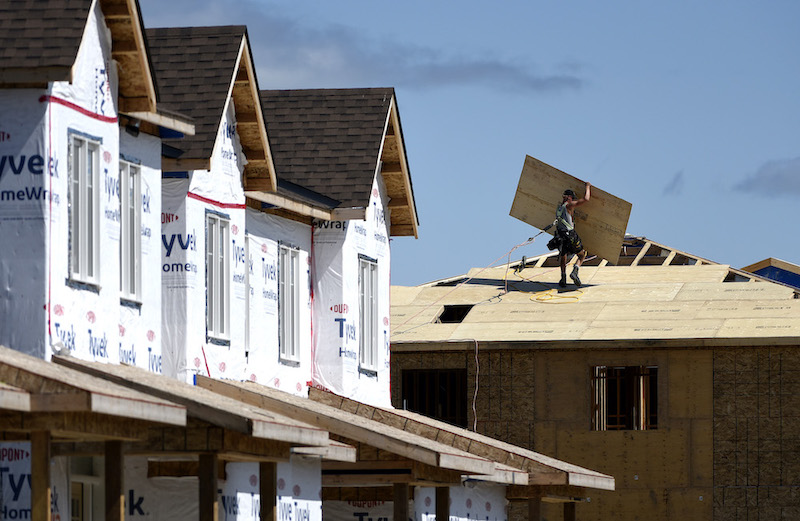Bill 23 could cost London, Ont., upwards of $100 million, according to a new report from city staff.

Also known as the More Homes Built Faster Act, Bill 23 aims to address the housing crisis by speeding up home construction and by building 1.5 million homes over the next 10 years.

This plan is set to take shape through an array of measures, including cuts to development charges, which are fees imposed by cities on new builds in order to pay for new infrastructure.
While the exact figure is still unknown, the report from staff estimates that costs for the Forest City could range between $25 million and $100 million.
“We don’t know the specific details on how some components of the act will come into effect, which means we don’t know the ultimate cost,” Mayor Josh Morgan told Global News.
“Staff are going to work towards preparing some information for the multi-year budget process, and then we’ll have a clearer picture of exactly what the financial impacts are,” he said. “There are certainly impacts beyond financial within this legislation.”

Get daily National news
The More Homes Built Faster Act reduces the role of conservation authorities, which includes limiting the areas they can consider when assessing development permissions such as the controversial decision to open Greenbelt land for housing — despite previous public vows not to — while adding more areas to the protected tract elsewhere. Bill 23 also removes factors such as pollution and conservation of the land, as well as flood risk.
However, Mark Wallace, director of the London Development Institute (LDI), said that it’s “very supportive” of the legislation.
“What we liked about what this government has been doing is they’ve been talking about the need to meet the demand that we’re seeing here in London and across the province for new housing due to, in London’s case, migration from other areas and immigration,” he said.
According to Wallace, the growth in the city’s population due to that sector, “which has been about two per cent per year,” will continue for at least the next decade.
“We needed help to make sure that we’re able to provide the housing units available for the increasing demand and keeping affordability in check as best as possible,” he said.
In regards to the possibility of London’s $100-million housing development total through Bill 23, Wallace said that the LDI is less concerned about the cost as the city might delay implementing the act due to a difference in development charge reserve funds compared to other cities.

“We were concerned that any delay or any phasing of development charges come after 2025 may actually slow down some development here because the cash flow would not be available to the city to actually put the pipes in the ground and build the roads. So, we recommended that we delay the change in the bylaw from 2025 to a future date,” he said.
Wallace said he feels “it’s an appropriate position by the City of London to delay (Bill 23) until we know how the city can move forward without any ramifications financially.”
Additionally, in looking toward future conversations surrounding planning in the city, he said that the cost will “probably be down at the $25-million range.”
The report from staff will be presented at the strategic priorities and policy committee meeting on Tuesday afternoon.
– with files from Global News’ Andrew Graham and The Canadian Press’ Allison Jones.












Comments